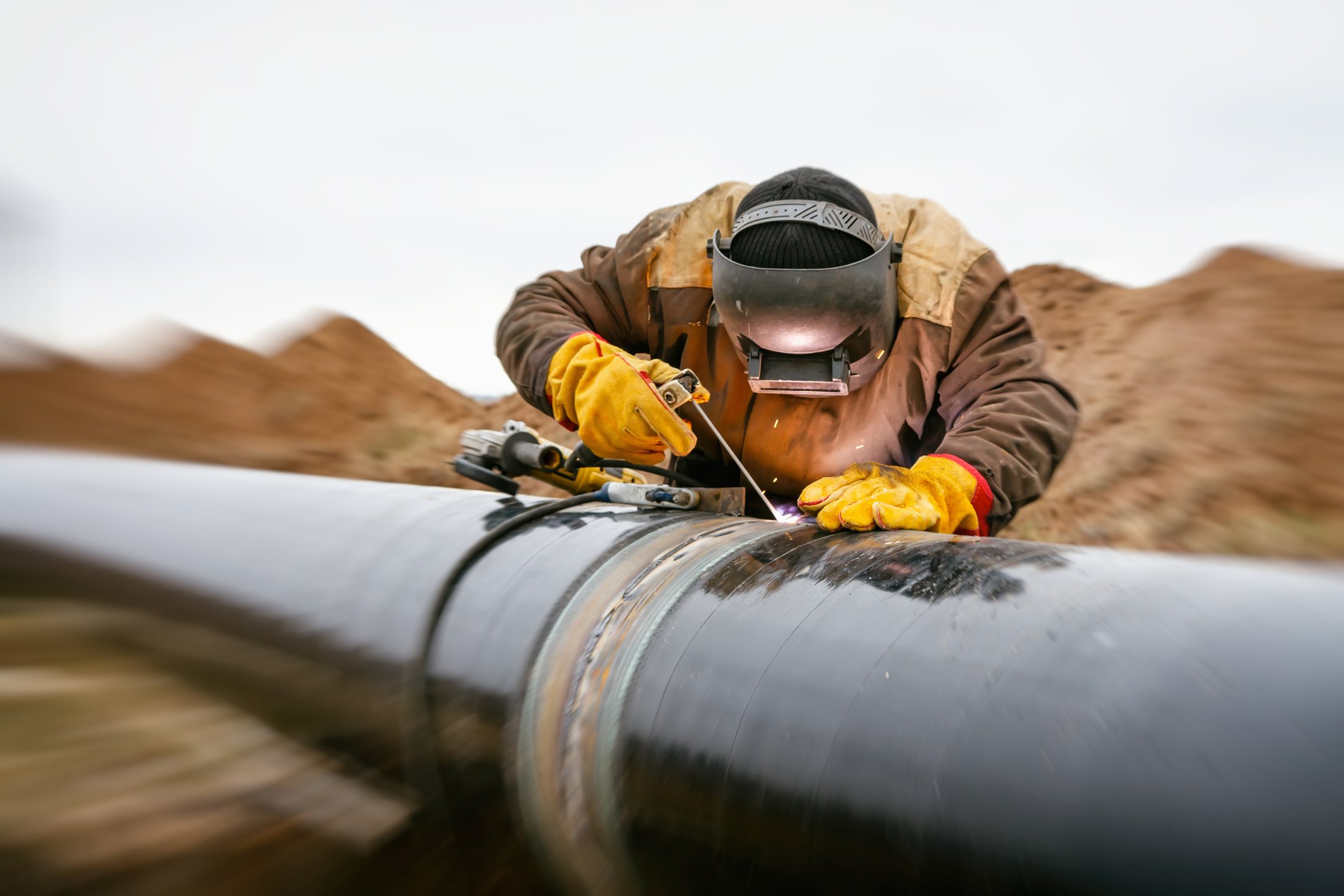What happened
Pipeline stocks are getting pulverized today. Several were down more than 10% by 12:30 p.m. EDT on Monday, including Energy Transfer (ET +0.48%), Phillips 66 Partners (PSXP +0.00%), ONEOK (OKE +1.78%), and Crestwood Equity Partners (CEQP +0.00%). Driving down shares of these pipeline operators was an unexpected legal setback and the cancellation of a major pipeline project.
So what
The U.S. District Court for the District of Columbia ordered that the Dakota Access Pipeline shut down and empty by Aug. 5 for further environmental review. The pipeline had been transporting oil out of North Dakota for the past three years. However, it previously faced a series of legal setbacks during construction, which delayed its in-service date.

Image source: Getty Images.
The news is a major blow to the pipeline's owners, which include Energy Transfer (with a 36.37% interest), Phillips 66 Partners (25% stake) and a joint venture between Marathon Petroleum (MPC +3.79%) and Enbridge (ENB 0.36%) that owns a 36.75% interest. With the pipeline shutting down, they'll no longer earn its contractually secured cash flows. On top of that, they'll incur additional costs as they fight to bring the pipeline back online. Because of that, these companies might have to reduce their high-yielding dividends.
The pipeline shutdown will also impact pipeline operators in North Dakota, like ONEOK and Crestwood. That's because producers in the region won't have enough pipeline capacity to ship their oil out of Bakken Shale, which will likely impact their ability to expand production. As a result, companies like ONEOK and Crestwood will gather and process fewer volumes while Dakota Access remains offline, which will impact their cash flows and ability to pay dividends.
Meanwhile, in another crushing blow to the pipeline sector, utilities Dominion Energy (D 0.32%) and Duke Energy (DUK 1.24%) canceled their long-delayed Atlantic Coast Pipeline following a series of legal setbacks. While the two companies won a favorable ruling by the U.S. Supreme Court last month, the U.S. District Court in Montana overruled a long-standing federal permit authority, which an appeals court wasn't likely to reverse. With so many legal hurdles to overcome, Duke and Dominion opted to abandon the project due to increasing costs. They initially expected to spend $4.5 billion to $5 billion on the gas pipeline, but delays and overruns had recently pushed the projected cost up to $8 billion.
The pipeline industry's latest setbacks will likely make companies less inclined to pursue major pipeline construction projects. That will impact the sector's ability to grow, making it even less attractive to investors.
Now what
The pipeline sector has become a battleground for environmentalists who want to keep the country's fossil fuel resources in the ground. That's because they can more easily mount legal battles to stop federal and state permits for new pipelines than those for new wells. These tactics are proving to be successful as they've forced the delay or cancellation of a growing number of major pipeline projects.
Because of that, it will be much harder for pipeline companies to expand their operations in the coming years. However, one possible outcome of the increasing limitations on the sector's growth is consolidation. By joining forces, pipeline companies could optimize their existing asset footprints to increase their ability to transport oil and gas.











